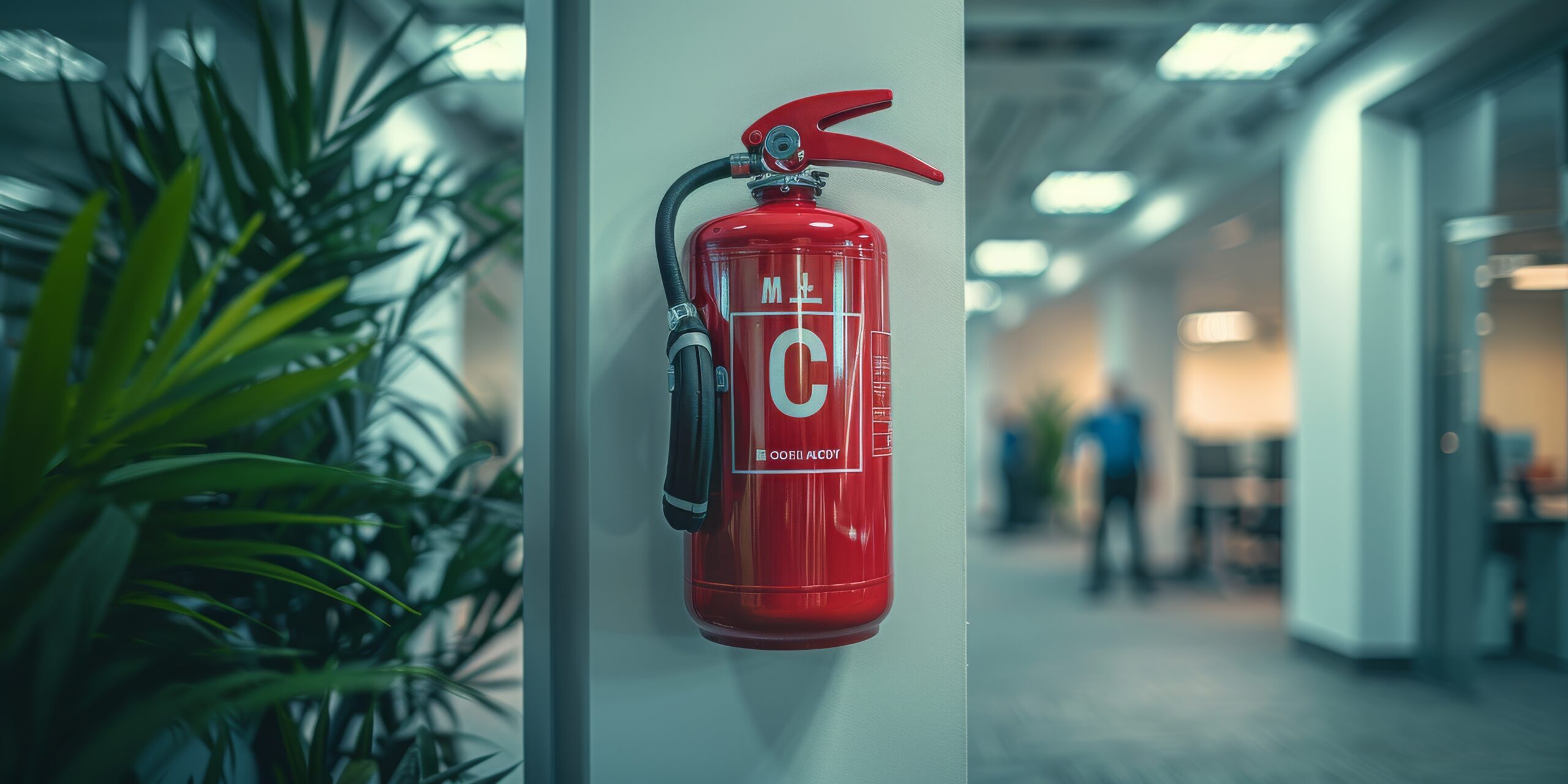As a commercial fire and life safety (FLS) sales professional, you have a hand in protecting businesses and their employees.
Not everyone wakes up with such a clear directive. Selling these critical offerings presents unique challenges in a saturated commercial services market. Buyer perceptions, a confusing web of regulations, and concerns about costs and continuity are just a few of the objections you hear daily.
This article expands on these common roadblocks, sharing how commercial FLS sales teams can overcome them and close more business.
1. Making the value of fire & life safety relatable
Reliable FLS systems can be the difference between life and death. No business owner wants to consider the horrors of an emergency, but showcasing these risks displays your value. It’s also helpful to explain that protecting their business and future financials requires a long-term commitment to safety. Just because the threat isn’t imminent doesn’t mean it won’t affect the bottom line.
Emphasize other return-on-investment (ROI) aspects of working with you besides property protection. Practical reasons include lower insurance premiums, but there are also benefits for employee welfare.
Fires and explosions are rare but costly and deadly. According to the Occupational Safety and Health Administration (OSHA), these incidents account for 3 percent of workplace injuries but have the highest casualty rate.Each year, fires contribute to 200 workplace fatalities, 5,000 employee injuries, and over $2.3 billion in property damage. If you put these consequences into perspective, it’s difficult for a prospect to deny the importance of continuing the sales conversation.
2. Differentiating your company from the competition
If the prospect knows the importance of FLS services, establishing your company as the best provider is the next challenge. The commercial market is competitive, so you must highlight your unique expertise and success stories. Doing so will go a long way in building trust and credibility.
Go above and beyond standard offerings. Develop unique service packages, cutting-edge technology integrations, or specialized inspection protocols. This strategy demonstrates your commitment to innovation and provides value beyond readily available options that your competitors also sell.
System plans vary depending on the operational aspects of the building. For example, fire and life protection for corporate office space will have different requirements than a data center warehouse. Knowing these details will improve your ability to address the prospect’s pain points in the opening pitch and beyond.
A sales solution like Convex’s Atlas provides deep property insights that eliminate hours of research. Teams that utilize Atlas quickly identify prospects with outdated equipment ready for replacement and needs that align with current service offerings.
You’ll align with prospects seeking a true safety partner by showcasing your unique value proposition and commitment to the property’s protection.
3. Ensuring your team has the technical knowledge
Invest in comprehensive sales training for your commercial services team. This approach equips them with in-depth knowledge of fire codes, regulations, and system functionalities. Not only will they understand the nuances themselves, but they can also confidently answer any questions prospects ask during the sales cycle.
For example, a decision-maker may ask how much of their equipment matches the latest regulatory requirements. If your team stays current on the changing local, state, and federal codes, they will answer confidently and position themselves as a trusted advisor. Some of the most common codes that your team needs to know include:
Depending on who you’re selling to, their technical knowledge may vary. Once you know their level of understanding, adapt accordingly. Instead of referring to the specifics of NFPA 72, speak to the safety benefits of an automatic fire alarm system with early smoke detection. The decision-maker should clearly understand how your services protect their employees and facilities.
When you invest in knowledge training, your salespeople lead the conversation, no matter if the prospect is an engineering manager or a C-level executive.
4. Overcoming objections about cost and business disruption
The two objections you’ll hear most often are cost and business disruption. Address those concerns with transparent pricing, efficient installation practices, and flexible scheduling. Then, reframe their investment. Gently remind them that without these minimal disruptions and service upgrades, they’d be looking at much higher costs, reputational damage, and long-term business closures if an emergency does occur.
A common mistake is putting too much emphasis on the technology aspect of the proposal. You don’t just sell safety equipment. In an emergency, on-site staff must identify, alert, and react to the incident in a way that protects their assets and employees. When you speak to the life safety aspects, it’s easier for maintenance and engineering managers to justify the costs to higher-ups.
Role-playing helps teams improve their rebuttals. Every objection needs a strong counterpoint. Teams must address concerns with authenticity and confidence to demonstrate the value of working with you. If you effectively communicate how your services save lives and minimize damage, prospects see that proactive safety measures are cheaper than post-event recovery.
Conclusion: Ignite your pipeline with Convex Atlas
While the importance of fire and life safety services is undeniable, exemplary salespeople are needed to navigate the top concerns of commercial businesses. Budgetary constraints, complex regulations, and value perceptions can undermine your team’s sales efforts. Understanding these challenges is crucial for tailoring your approach.
With so many roadblocks to address within the commercial FLS landscape, ensure your team has the best sales tools. With Convex Atlas, property data and affiliated contact information are a search away. Meeting your test and inspection revenue targets has never been easier. Contact Convex to improve your prospecting for commercial fire and life safety sales teams.
Share





